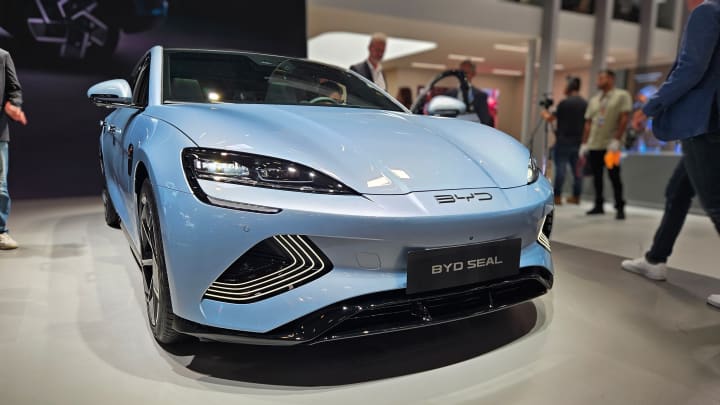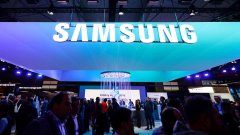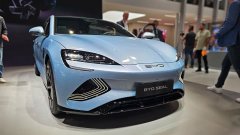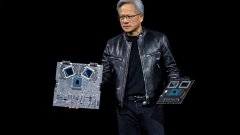
BEIJING — and announced Wednesday that drivers on the ride-hailing platform can get pricing and financing deals for the Chinese company's electric cars, starting in Europe and Latin America.
The two companies will also develop "autonomous-capable vehicles" for Uber's platform, according to a press release.
The multi-year strategic partnership, which the companies said could bring 100,000 BYD cars to Uber, comes despite the EU following the U.S. this year in .
"As the largest global agreement of its kind, we're thrilled about the benefits this partnership will deliver for drivers, riders, and cities," Uber CEO Dara Khosrowshahi said in the release.
Shenzhen-based BYD has become a in China's electric car market. The company surpassed in for two straight years and has , including investments in factories abroad.
"Uber and BYD share a commitment to innovate towards a cleaner, greener world, and I am excited to work together towards that future," Chuanfu Wang, BYD chairman and president, said in a statement in the joint release with Uber.
The two companies plan to expand the deal to cover the Middle East, Canada, Australia and New Zealand, the press release said.
Last year, BYD exported more than 240,000 cars across 70 countries. The company aims to this year.
"This collaboration marks a new era in the electrification of urban mobility, and we look forward to seeing our cutting-edge EVs become a common sight on the streets of cities worldwide," Stella Li, executive vice president at BYD and CEO of BYD Americas, said in the release.
The release did not specify which car models, but included a promotional image with three cars: BYD's Seal sedan, Seal U SUV and Atto 3 SUV. All three cars are listed on BYD's Europe website.
BYD in 2020 had called the D1 for Chinese ride-hailing operator Didi. Last summer, BYD announced that
in 2016 for $35 billion. The Chinese ride-hailing operator had listed in the U.S. in 2021, but delisted less than a year later amid intense regulatory scrutiny.
Didi announced in May 2023 it was with GAC Aion for mass production of an electric robotaxi.
A BYD spokesperson had said in April that year that fully autonomous driving is "basically impossible" and that the technology would be




